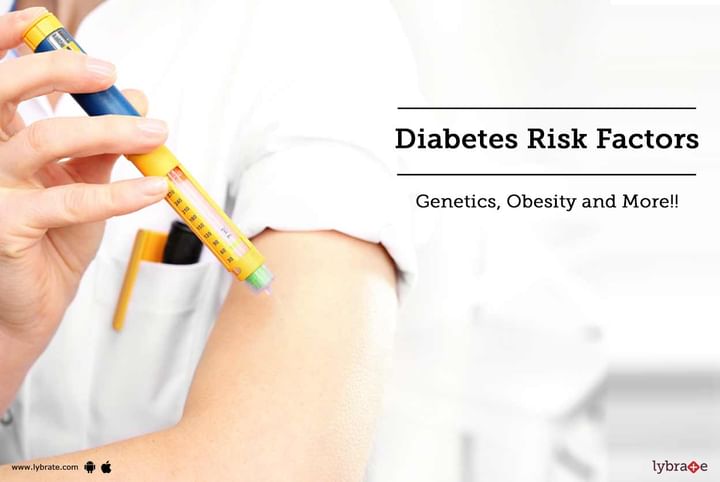Diabetes Risk Factors: Genetics, Obesity and More!!
Type 1 diabetes is commonly referred to as T1 DM diabetes and is mostly witnessed among young people. It can also occur in adults. In this condition, the body doesn’t produce enough insulin or completely stops producing insulin. The immune system, which saves the body from foreign microbes, attacks the cells that are responsible for producing insulin. The treatment methods include taking insulin shots, taking healthy diet, increased physical activity and controlling blood pressure and cholesterol levels.
In type 2 diabetes, either the body doesn’t produce enough insulin, or the beta cells in the body don’t recognise the insulin that is present. It is a progressive condition in which the body becomes resistant to the normal effects of insulin and/or gradually loses the capacity to produce enough insulin in the pancreas. The end result is the same: high levels of glucose in your blood.
Gestational diabetes is observed in many pregnant women. The hormones produced during pregnancy can block insulin to be used by the body. While insulin resistance is common during pregnancy, failure of the pancreas to fill in the additional insulin in the body can result in gestational diabetes. Women who are overweight are more likely to develop this condition. Although gestational diabetes goes automatically after the baby is born, it often recurs in the form of type 2 diabetes in a later stage of life. It is usually diagnosed on screening with OGTT between 22 to 32 weeks. Treatment is initially diet management but if that does not work then only Insulin.
How does insulin resistance relate to type 2 diabetes and prediabetes?
Insulin resistance increases the risk of developing type 2 diabetes and prediabetes. Prediabetes usually occurs in people who already have insulin resistance. Although insulin resistance alone does not cause type 2 diabetes, it often sets the stage for the disease by placing a high demand on the insulin-producing beta cells. In prediabetes, the beta cells can no longer produce enough insulin to overcome insulin resistance, causing blood glucose levels to rise above the normal range.
Once a person has prediabetes, continued loss of beta cell function usually leads to type 2 diabetes. People with type 2 diabetes have high blood glucose. Over time, high blood glucose damages nerves and blood vessels, leading to complications such as heart disease, stroke, blindness, kidney failure, and lower-limb amputations.
Risk factors for diabetes
- Weight: Being overweight is a primary risk factor for diabetes. An increased amount of adipose tissue increases the risk of insulin resistance by the body. It is therefore essential to shed as much weight as one can to avoid diabetes.
- Inactivity: Immobility increases the risk of diabetes in a person. It stacks up glucose in the body, making it difficult for the body to use glucose and convert it into energy. A daily routine which is devoid of physical activity ensures fat storage in the body, which can turn into type 2 diabetes.
- Family history: Diabetes, especially type 2, is closely linked with family history. If a person has diabetes, it is very likely that his immediate family or extended family has a history of diabetes.
- Ethnicity: African-Americans, people from the Indian subcontinent, Latinos, etc., are more likely to suffer from diabetes compared to their American or European counterparts. Lifestyle and eating habits are the major reasons for diabetes in these races.
- Age: Age has a direct correlation with diabetes. The age group of 45–65 is considered to be more diabetes-prone. Inactivity, immobility, and an increase of sugar intake are some of the primary reasons for developing diabetes in this age group.
Type diabetes



+1.svg)
